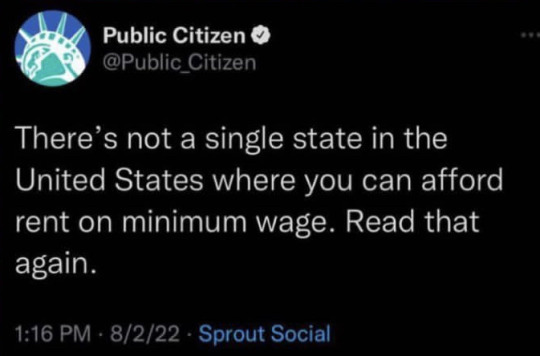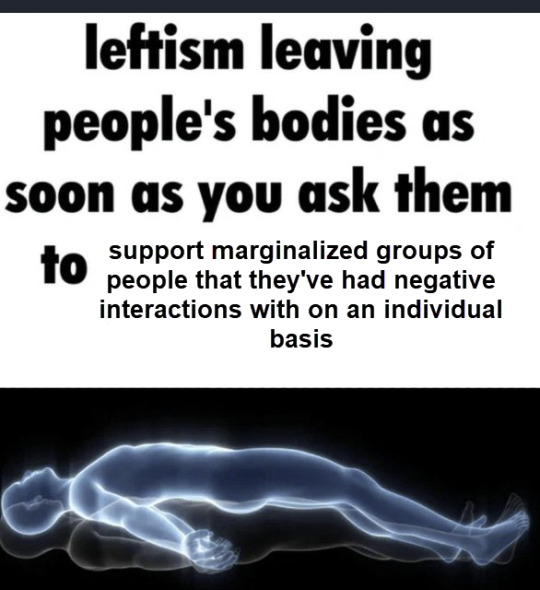#us housing market
Video
youtube
How the US Is Destroying Young People’s Future | Scott Galloway | TED
10 notes
·
View notes
Text

85 notes
·
View notes
Text
Pls, let me have house. Pls.
#pls#housing market#us housing market#economy in shambles but i want to control the volume of the tv in my home
2 notes
·
View notes
Text
seeing all these unemployed people looking for houses outside of America on House Hunters makes me think I should do the same. if they can believe their delulu, I should start too.
#my thoughts#house hunters#us housing market#i’m unemployed#unemployed activities#late stage capitalism#unemployment#us jobs#us job market#delulu
1 note
·
View note
Text
What the Latest NAR Settlement Means for You
The recent settlement in the National Association of Realtors (NAR) case, has sparked widespread discussion and, unfortunately, some misconceptions. Despite what the headlines may suggest, the settlement is not about diminishing the value real estate professionals provide or making homeownership a distant dream. Instead, it’s an opportunity to enhance transparency, flexibility, and ultimately,…

View On WordPress
0 notes
Text
The American Housing Market Resembles 2006
The American Housing Market Is Resembling 2006. Is It Deja Vu All Over Again?
The American housing market is sound disturbingly familiar to us who survived the housing crash 15 years ago. Skyrocketing home prices have very suddenly leveled off. Recession fears are swirling and the number of home sales has dropped off in the past year. Is it 2006? Remember, the year that saw the ramp-up to…

View On WordPress
#American Housing Market#banking#banks#debt#foreclosure#foreclosures#housing market#housing market collapse#Lending restrictions#liens#mortgage lending#mortgage lending insanity#mortgages#real estate#US Housing Market#US housing markets#Wall Street
0 notes
Text
Good news! You aren't required to make your hobbies and passions "marketable." In fact, your crafts, hobbies, and passions don't even need to be public if you so choose. You don't have to spend all of your energy becoming perfect if you aren't enjoying the process. You are not a product, you are a person, a creative, and your work also does not need to be a product.
#positivity#yet another post that's like... thinnly-veiled as being for myself#i find myself freezing with anxiety when i think about the things i used to do (writing especially) because...#...i had felt this force to make it ~content~ and ~marketable to an audience~ and it was so fucking daunting...#...it felt like being a gladiator in a coliseum#even now i fight the urge to equate being marketable to being acceptable and worthy of admiration and praise#i wish i hadn't burnt myself out of writing by doing this because i'm simultaneously grieving my writing and hating it#and it sucks the life out of what makes you feel like a person and it takes the art out of art#so be free! pist your art or don't! you are beholden to nobody!!!#(obviously this is not the case for professional artists who rely on their art to keep them alive)#(and i criticize heavily the idea that audiences are entitled to an artists labour)#(i understand that this isn't universal and if it doesn't apply to you then you don't have to take me seriously)#(if you are a professional artist or what have you i hope you are able to feed and house yourself off of that career!)#(i hope you are able to live a happy life and be able to keep loving what you're doing)
1K notes
·
View notes
Text
This is not at all a new take on life here in the US of A however I feel as though I will peel my skin off if I don’t say it;
People are seeing death as a valid option to the current state of the world + the future and now I am fully understanding why.
There is no more ‘village’. There are no reliable social safety nets installed that are realistic or easy to access. You H A V E to drive EVERYWHERE if you’re even able to drive. If your area has a bus it has to fight on the road with every other driver. To get 9 miles away from point A to B takes 2 hour out of your day. No one is hiring or they are paying minimum wages for you to run their whole circus operation damn near by yourself. Average 1 bedroom apartments are $1.1k a month for 500 sqf and if you SOMEHOW get a roommate and get them to agree to split rent and utilities then y’all are going to battle for personal space. A 2 bed is out of the question bc there is no way in hell that you can save anything if you are spending more then half of your wages on rent. You want to go out and have a sense of what it means to be fulfilled as a human? Don’t even dream about it, you have your bills coming up.
Get a second or 3rd job? Wait… you were able to find one? They didn’t ghost? Lucky you; now you are better off & you can now sleep knowing that the 2nd job will be able to pay for the gas ($3+/gal), insurance (3X what it used to be but still making you open up ur wallet before they step in), and your car note! (Wayyy too much for a used).
What is fun? What are get togethers? What is a ‘cheap meal’? What’s a bucket list? What’s a vacation? What’s a hobby? Wait, you can afford to replace items and not get anxiety over it? You can afford more then an arm full of groceries?? Will you be able to retire by the time you’re 60 with enough money in the bank to not just exist, but to do the things you’ve always wanted to do during those working decades? What will elder and death care look like? Will your children be able to not live in poverty?
We as young people are seeing death as a valid option because we know we will NEVER see an adult life like those before us prior to the 90’s. Starting a family or adding on to your family will put you in poverty. Buying a house if you’re fortunate enough will put you in poverty. Renting will put you in poverty. Working more jobs will put you in poverty. Having a car will put you into poverty, not having one will keep you from ever getting one. We will just work and work to never ever have anything to show for it. This is not the lifestyle that I’d doom more life to do for the rest of their lives. Something’s gotta change sooner rather then later and it’s gotta be grass roots. We have to be willing to break some rules to get to where we need to be.
Things. Must. Change.
#tw death#ask to tag#death as an option#cost of living#cost of living crisis#housing crisis#rent crisis#unaffordable housing#US housing crisis#public transportation#jobs#wages#job market
204 notes
·
View notes
Text

this could legitimately be about any cause that liberals "support," but in particular, i made this in response to the reaction from some of the local city-based subreddits that i've been reading recently.
self-proclaimed "pretty progressive people" are complaining of "empathy fatigue" (LOL) because they have to "deal with" unhoused people and people addicted to drugs on a regular basis.
as usual, pulling back the curtains on the real state of the world has always been too grotesque for these NIMBY-types to stomach. so they'll turn their backs on their so called "principles" because they have a high population of unhoused people in their area and it's starting to personally affect their comfort.
we're not asking questions like: why are we still allowing anyone in any major metropolitan city to sleep on the ground, outdoors or wander the streets aimlessly, high out of their minds and potentially a danger to themselves and others?
we continuously fail the most vulnerable people in our society and insist that we are already doing "so much" to help them, meanwhile, 15.1 million homes sit vacant in this country (10.5% of the real estate market), all while foreign investors continue to buy them up like the housing market is going out of business (spoiler).
your support for marginalized people should not be based upon some fictitious level-based system of discomfort that you experience upon interacting with them.
no matter what "resources" have already been provided, clearly it's not enough, because there are still people sleeping on city streets in the richest country on earth.
this is what a lot of people on the far-left have been saying: there needs to be a radical shift in the way that we view not just the problems that we have, but the solutions. we create artificial barriers and then blame them for getting in the way.
we have to be able to do better than throwing pittance money at big problems that inevitably we know won't be nearly enough, but will later be pointed to as a massive investment. we know this is not true and we allow them to lie to us anyway. look at the dollars going to ukraine and israel and then tell me that it is proportionate to the money we spend on addressing the housing crisis or the health care crisis or any other crisis that we have in our own backyard.
this ended up longer than i intended. between the rampant racism toward Arab folks and the about-face so many liberals have performed on taking care of our societies most vulnerable, i'm so disappointed with where we are now. it's embarassing.
129 notes
·
View notes
Text
for hs4 rollout I would like to manifest sudden, surprise drops
#🕯️🕯️🕯️#want to wake up one morning to a photoshoot a single and the album release date and tracklist#I don’t want to scour the internet’s html coding for clues#meaning no eroda or you are home scavenger hunts#maybe it’s swiftie style burnout too#i just don’t think harry needs that kind of marketing anymore to get us hyped#we are hyped already but#we’re old and tired and impatient#im going to approach this album era differently in terms of fandom consumption#because i really struggled with fandom and burnout during Harry’s house#anywayyyy just thinking about hs4 and how my blog will navigate#hs4 is coming
44 notes
·
View notes
Text
let kieran punch us 2k23
#solis.txt#sv dlc spoilers#indigo disk spoilers#ok was it just me or was that ending… a little underwhelming?#LIKE ok its a pokemon game they have to be nice and marketable and they cant live up to rhe story in my head but#kieran shouldve gotten more time to be angry at us briar shouldve been more deranged in the head terapagos shouldve been an eldritch horror#(that one shrek image) and the tree wasnt even that important#oh well. I have to do everything in this goddamn house
45 notes
·
View notes
Text
People who complain about those who undercut by 1 Gil you know that we do that to be polite right?
If everyone undercuts by 1 Gil, the price stays relatively stable. If everyone undercuts by hundreds or even thousands it leads to devaluation or worse, a fluctuating market. Trust me, the bots that undercut are annoying, but it’s the bots, not the undercutting.
Ppl complain about stuff being overpriced and I’m not going to knock that one bc it’s true to some extent—that being said it is ridiculously easy to make extra money in this game if you really want to. To what extent do we lower the values of certain items? Inflation is out of control wrt things like materia absolutely (especially DOH/DOL materia but if you’re worrying about that you definitely can make enough cash to deal with that) but on some level, it is a free market. Hop over to another world if you rly need something on the cheap ig.
But honestly I’m curious how people feel about this.
#like I guess you can list it at the same price?#but culturally undercutting by 1 gil is considered polite in like#all the communities im in#the people who piss us off are the ones who tank the value of a market#e-capitalism#ffxiv#do I post my shit guide to making gil#I would be so rich if I could reign in my spending but alas I’m a housing addict
72 notes
·
View notes
Text
By Thom Hartmann
Back in 1967, a friend of mine and I hitchhiked from East Lansing, Michigan to San Francisco to spend the summer in Haight-Ashbury. One ride dropped us off in Sparks, Nevada, and within minutes of putting our thumbs out a city police car stopped and arrested us for vagrancy.
The cop, a young guy with an oversized mustache who was apologetic for the city’s policy, drove us to the desert a mile or so beyond the edge of town, where we hitchhiked standing by a distressing light-post covered with graffiti reading “39 hours without a ride,” “going on our third day,” and “anybody got any water?”
Vagrancy laws were so 20th century.
Today, the US Supreme Court heard a case involving efforts by the City of Grants Pass, Oregon to keep homeless people off its streets and out of its parks and other public property. The city had tried a number of things when the problem began to explode in the last year of the Trump administration, as The Oregonian newspaper notes:
“They discussed putting them in their old jail, creating an unwanted list, posting signs at the city border or driving people out of town... Currently, officers patrol the city nearly every day, Johnson said, handing out [$295] citations to people who are camping or sleeping on public property or for having too many belongings with them.”
The explosion in housing costs has triggered two crises: homelessness and inflation. The former is harming the livability of our cities and towns, and the Fed’s reaction to the latter threatens an incumbency-destroying recession just as we head into what will almost certainly be the most important election in American history.
The problem with housing inflation is so severe today that without it the nation’s overall core CPI inflation rate would be in the neighborhood of Fed Chairman Jerome Powell’s 2% goal.

Graphic based on BLM data and interpretation by The Financial Times
Both homelessness and today’s inflation are the result of America — unlike many other countries — allowing housing to become a commodity that can be traded and speculated in by financial markets and overseas investors.
Forty-three years into America’s Reaganomics experiment, homelessness has gone from a problem to a crisis. Rarely, though, do you hear that Wall Street — a prime beneficiary of Reagan’s deregulation campaign — is helping cause it.
32% seems to be the magic threshold, according to research funded by the real estate listing company Zillow. When neighborhoods hit rent rates in excess of 32% of neighborhood income, homelessness explodes.
And we’re seeing it play out right in front of us in cities across America because a handful of Wall Street billionaires want to make a killing.
It wasn’t always this way in America.
Housing prices have spun out of control since my dad bought his house in 1957 when I was six years old. He got a Veteran’s Administration-subsidized loan and picked up the brand-new 3-bedroom-1-bath ranch house my 3 brothers and I grew up in, in suburban south Lansing, Michigan. It cost him $13,000, which was about twice what he made every year working a good union job in a tool-and-die shop.
When my dad bought his home in the 1950s the median price of a single-family house was 2.2 times the median American family income. Today, the Fed says, the median house sells for $479,500 while the median American personal income is $41,000 — a ratio of more than ten-to-one between housing costs and annual income.
As the Zillow study notes:
“Across the country, the rent burden already exceeds the 32% [of median income] threshold in 100 of the 386 markets included in this analysis….”
And wherever housing prices become more than three times annual income, homelessness stalks like the grim reaper.
We’re told that America’s cities have seen this increase in housing costs since the 1950s in some part because of the growing wealth and population of this country. There were, after all, 168 million people in the US the year my dad bought his house; today there are 330 million.
And it’s true that we haven’t been building enough new housing, particularly low-income housing, as 43 years of neoliberal Reaganomics have driven down wages and income for working-class people relative to all of their expenses while stopping the construction of virtually any new subsidized low-income housing.
But that’s not the only, or even the main dynamic, driving housing prices into the stratosphere — and, as a consequence, the crisis in homelessness — over the past decade. You can thank speculation for much of that.
As the Zillow-funded study noted:
“This research demonstrates that the homeless population climbs faster when rent affordability — the share of income people spend on rent — crosses certain thresholds. In many areas beyond those thresholds, even modest rent increases can push thousands more Americans into homelessness.”
So how did we get here?
It started with a wave of foreign buyers over the past 30 years (particularly from China, Canada, Mexico, India and Colombia) who, in just the one single year of 2020, picked up over 154,000 homes as their way of parking money in America. Which is part of why there are over 20 times more empty houses in America than there are homeless people.
As Marketwatch noted in a 2015 article titled “The Danger of Foreign Buyers Gobbling Up American Homes”:
“Unusual high appreciation of the aforementioned urban centers is due to the ever growing influx of foreign buyers — mostly wealthy Chinese — who view American residential real estate as the safest investment commodity. … According to a National Realtors Association survey, the Chinese spent $22 billion on U.S. housing in 12 months through March 2014…. [Other foreign buyers primarily include] Canadians, British, Indians and Mexicans.”
But foreign investment has been down for the past few years; what’s taken over and is really driving home prices today are massive, multi-billion-dollar US-based funds that sweep into neighborhoods and buy everything available, bidding against families and driving up housing prices.
As noted in a Wall Street Journal article titled “Meet Your New Landlord: Wall Street,” in just one suburb (Spring Hill) of Nashville, “In all of Spring Hill, four firms … own nearly 700 houses … [which] amounts to about 5% of all the houses in town.”
This is the tiniest tip of the iceberg.
“On the first Tuesday of each month,” notes the Journal article about a similar phenomenon in Atlanta, investors “toted duffels stuffed with millions of dollars in cashier’s checks made out in various denominations so they wouldn’t have to interrupt their buying spree with trips to the bank…”
The same thing is happening in cities and suburbs all across America; the investment goliaths use finely-tuned computer algorithms to sniff out houses they can turn into rental properties, making over-market and unbeatable cash bids often within minutes of a house hitting the market.
After stripping neighborhoods of homes families can buy, they then begin raising rents as high as the market will bear.
In the Nashville suburb of Spring Hill, for example, the vice-mayor, Bruce Hull, told the Journal you used to be able to rent “a three bedroom, two bath house for $1,000 a month.” Today, the Journal notes:
“The average rent for 148 single-family homes in Spring Hill owned by the big four [Wall Street investor] landlords was about $1,773 a month…”
Ryan Dezember, in his book Underwater: How Our American Dream of Homeownership Became a Nightmare, describes the story of a family trying to buy a home in Phoenix. Every time they entered a bid, they were outbid instantly, the price rising over and over, until finally the family’s father threw in the towel.
“Jacobs was bewildered,” writes Dezember. “Who was this aggressive bidder?”
Turns out it was Blackstone Group, now the world’s largest real estate investor. At the time they were buying $150 million worth of American houses every week, trying to spend over $10 billion. And that’s just a drop in the overall bucket.
In 2018, corporations bought 1 out of every 10 homes sold in America, according to Dezember, noting that, “Between 2006 and 2016, when the homeownership rate fell to its lowest level in fifty years, the number of renters grew by about a quarter.”
This all really took off around a decade ago, when Morgan Stanley published a 2011 report titled “The Rentership Society,” arguing that — in the wake of the 2008 Bush Housing Crash — snapping up houses and renting them back to people who otherwise would have wanted to buy them could be the newest and hottest investment opportunity for Wall Street’s billionaires and their funds.
Turns out, Morgan Stanley was right. Warren Buffett, KKR, and The Carlyle Group have all jumped into residential real estate, along with hundreds of smaller investment groups, and the National Home Rental Council has emerged as the industry’s premier lobbying group, working to block rent control legislation and other efforts to regulate the industry.
As John Husing, the owner of Economics and Politics Inc., told The Tennessean newspaper:
“What you have are neighborhoods that are essentially unregulated apartment houses. It could be disastrous for the city.”
Meanwhile, as unionization levels here remain among the lowest in the developed world, Reagan’s ongoing war on working people continues to wipe out America’s families.
At the same time that housing prices, both to purchase and to rent, are being driven through the roof by foreign and Wall Street investors, a survey published by NPR, the Robert Wood Johnson Foundation, and the Harvard TH Chan School of Public Health found that American families are in crisis.
Their study found:
— “Thirty-eight percent (38%) of [all] households across the nation report facing serious financial problems in the previous few months.
— “There is a sharp income divide in serious financial problems, as 59% of those with annual incomes below $50,000 report facing serious financial problems in the past few months, compared with 18% of households with annual incomes of $50,000 or more.
— “These serious financial problems are cited despite 67% of households reporting that in the past few months, they have received financial assistance from the government.
— “Another significant problem for many U.S. households is losing their savings during the COVID-19 outbreak. Nineteen percent (19%) of U.S. households report losing all of their savings during the COVID-19 outbreak and not currently having any savings to fall back on.
— “At the time the Centers for Disease Control and Prevention’s (CDC) eviction ban expired, 27% of renters nationally reported serious problems paying their rent in the past few months.”
These are not separate issues, and they are driving an explosion in homelessness.
The Zillow study found similarly damning data:
— “Communities where people spend more than 32% of their income on rent can expect a more rapid increase in homelessness.
— “Income growth has not kept pace with rents, leading to an affordability crunch with cascading effects that, for people on the bottom economic rung, increases the risk of homelessness.
— “The areas that are most vulnerable to rising rents, unaffordability, and poverty hold 15% of the U.S. population — and 47% of people experiencing homelessness.”
The Zillow study makes grim reading and is worth checking out. In community after community, when rent prices exceeded 32% of median household income, homelessness exploded. It’s measurable, predictable, and is destroying what’s left of the American working class, particularly minorities.
The loss of affordable homes also locks otherwise middle-class families out of the traditional way wealth is accumulated — through homeownership: Over 61% of all American middle-income family wealth is their home’s equity. And as families are priced out of ownership and forced to rent, they become more vulnerable to long-term economic struggles and homelessness.
Housing is one of the primary essentials of life. Nobody in America should be without it, and for society to work, housing costs must track incomes in a way that makes housing both available and affordable. This requires government intervention in the so-called “free market.”
— Last year, Canada banned most foreign buyers from buying residential property as a way of controlling their housing inflation.
— New Zealand similarly passed its no-foreigners law (except for Singaporeans and Australians) in 2018.
— Thailand requires a minimum investment of $1.2 million and the equivalent of a green card.
— Greece bans most non-EU citizens from buying real estate in most of the country.
— To buy residential housing in Denmark, it must be your primary residence and you must have lived in the country for at least 5 years.
— Vietnam, Austria, Hungary, and Cyprus also heavily restrict who can buy residential property, where, and under what terms.
This isn’t rocket science; the problem could be easily fixed by Congress if there was a genuine willingness to protect our real estate market from the vultures who’ve been circling it for years.
Unfortunately, when Clarence Thomas was the deciding vote to allow billionaires and hedge funds to legally bribe members of Congress in Citizens United, he and his four fellow Republicans opened the floodgates to “contributions” and “gifts” from foreign and Wall Street interests to pay off legislators to ignore the problem.
Because there’s no lobbying group for the interests of average homeowners or the homeless, it’s up to us to raise hell with our elected officials. The number for the Congressional switchboard is 202-224-3121.
If ever there was a time to solve this problem — and regulate corporate and foreign investment in American single-family housing — it’s now.
#us politics#op ed#thom hartmann#hartmann report#common dreams#homelessness#end homelessness#housing#housing market#2024#Reaganomics#zillow#foreign buyers#Marketwatch#the Oregonian#Wall Street Journal#Ryan Dezember#Underwater: How Our American Dream of Homeownership Became a Nightmare#The Rentership Society#Morgan Stanley#The Tennessean#NPR#Robert Wood Johnson Foundation#Harvard TH Chan School of Public Health#affordable housing
16 notes
·
View notes
Text
Maximize Your Home Sale with the Power of Equity
Key Points
Understanding your home equity can be a game-changer when deciding to sell your home, especially in today’s market of high mortgage rates.
Nearly 70% of homeowners have significant equity, making it an opportune time to consider selling.
Our expert real estate team is here to guide you through the process, offering free home equity assessments and answering any questions you may…

View On WordPress
#Home Sellers#National home sellers#National Real Estate Market#National Real Estate Market statistics#Real Estate Terminology#US home sales#US Housing Market
0 notes
Text
I think some of you are getting annoyed at booktok for the wrong reasons
#text#I don’t have a tiktok. however#say it with me: people sharing their cringe tastes is literally fine and good and a lot of ‘booktok’ books are genuinely good#they just get overwhelmed by the discussion about the cringe ones#WHAT IS BAD about booktok is that in this new world authors are being forced to advertise their own work and be their own marketing teams#something that they didn’t use to have to do and also ARENT PREPARED TO DO#this creates 1. a weird relationship between artist and consumer#and 2. way more labour for the author that they don’t have the time and energy to commit to#instead a being annoyed about their being a booktok table at you local store (which is actually a good thing cause often times those books#are from new up and coming authors and they would only be on the table if they were selling)#try talking about books that you like. support authors by looking at their other work outside of what is advertised#put pressure on publishing houses to support their writers#anyway
28 notes
·
View notes
Text

#vent post#ok to rb without screenshotting the tags but idk why you'd do that anyways#I'm once again wishing every fellow adult living with their parents a very 'I'm sorry o7'#mom's getting on my case about 'not wanting to be part of the family'#but if dinners are always silent and uncomfortable with all of us not talking then I think it's normal for me to leave the table#when I'm done eating. it's not 'not wanting to be part of the family' it's just not wanting to be somewhere awkward as hell lmfao#like oh okay sorry let me sit here for another fifteen minutes silently bc y'all ignore every conversation I try to start. jesus christ.#goddddddddddddddddddd fuck the housing market lmao#I love my family but I'd like them a hell of a lot more if I didn't live here#a little distance does wonders#anywaysssss sending love to everyone else who is perpetually stuck at home. esp oldest siblings and ill folk 🤝#we'll get out eventually#no more silent dinners and people who find your optimism and attempts to lighten the mood to be juvenile#stay miserable and pragmatic and 'realist'. no joy or whimsy. fucking whatever. I'm not sinking down to cynicism.#what's the opposite of being the moody black sheep of the family lmao. I'm the only one who seems to enjoy being unserious#ok. vent over but fr anyone else stuck at home when they don't want to be: i love you and we'll figure it out in time. things WILL work out#delete later???
15 notes
·
View notes